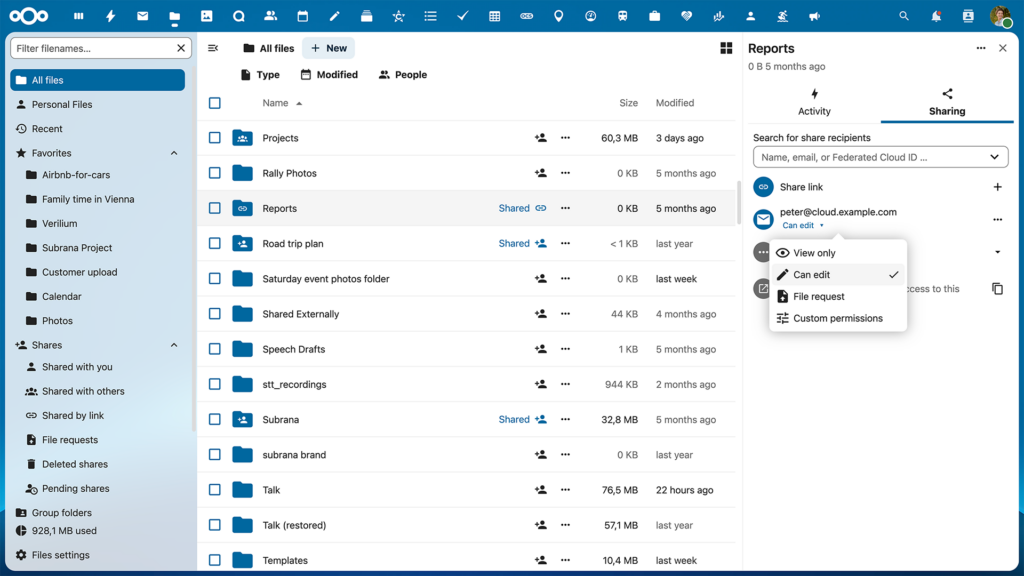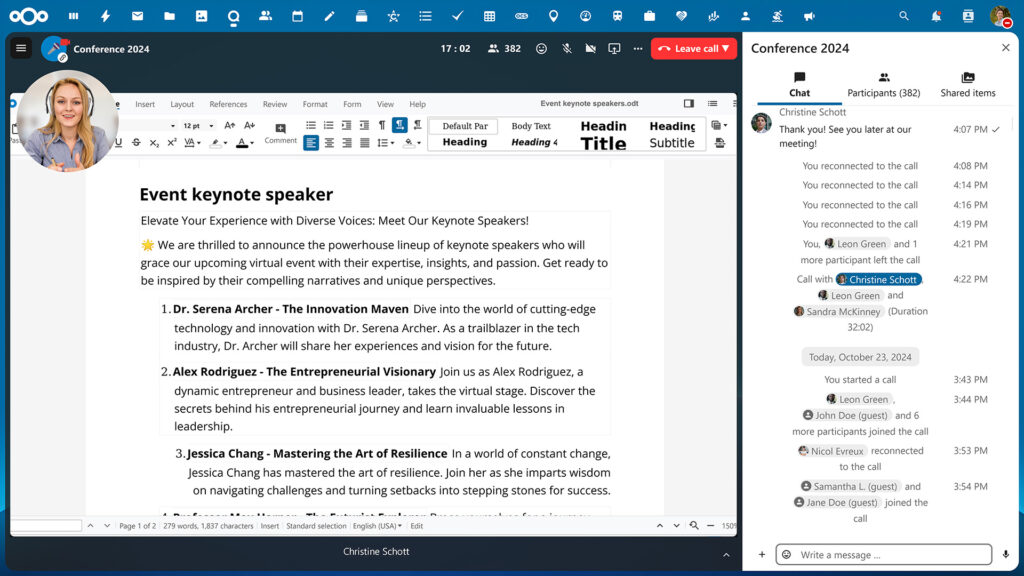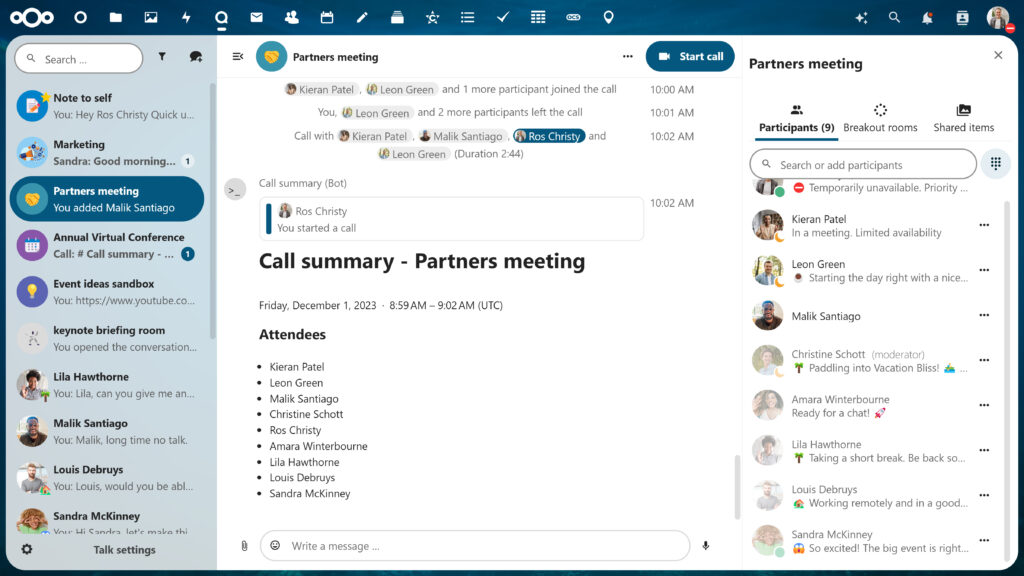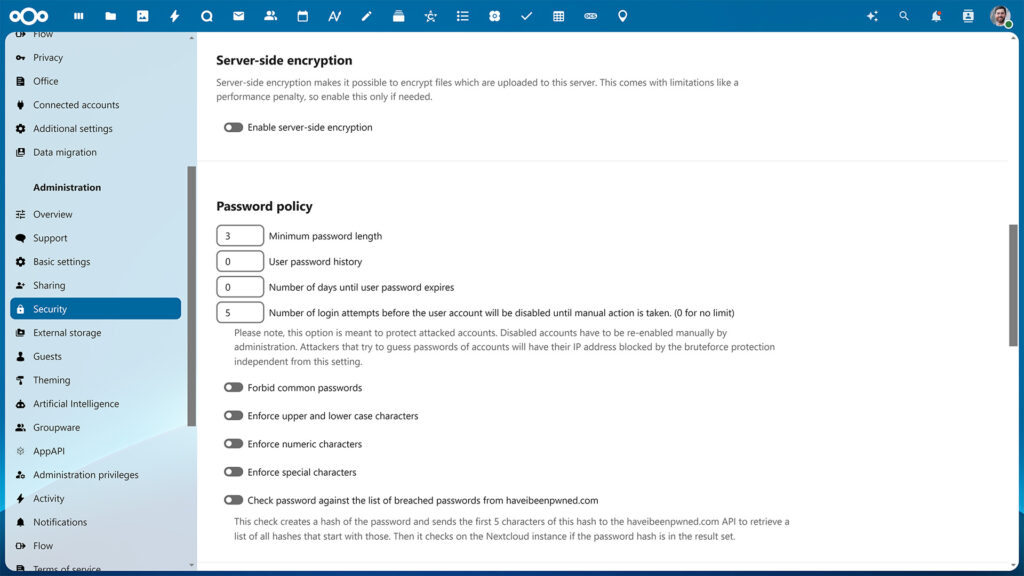What is Enterprise file sync and share?
Enterprise file sync and share software gives users access to work documents, photos and videos from any of their devices. With an EFSS solution, you can prevent your employees from using consumer-based file sharing apps to store, access and manage corporate data outside the IT departments’ control and visibility.
Main differentiators
The most important factors enterprises look for
Ease of use
A simple, familiar interface is key for fast adoption. While the more complex document management solutions, groupware products or workflow tools are introducing EFSS features, they tend to be too complicated so users keep using Dropbox or Google Drive.
Infrastructure integration
Another key barrier to adoption is integration in existing data silos and user management. While most off-premises solutions integrate with Active Directory, data typically has to be migrated. On-premises solutions can offer access to existing data on Windows Network Drive, Sharepoint or FTP storages, as well as Outlook and other integrations.
Built-in collaboration
The market is quickly moving away from file exchange solutions and towards integrated work flows with video chat, task management and collaborative document editing built in (thus evolving into “content collaboration platforms”). Solutions which are slow to adopt to these trends present a long-term risks for their customers as migrations are costly.
Key features
What EFSS applications can do:
Sync files
Share links
User management integration
Protect data
Cloud based or on premise
What enterprise file sync collaboration tools look like
Security
Security of an EFSS software
EFSS software is entrusted with highly valued and sensitive data. The loss of company secrets due to theft, the risk of leakage of private customer data or the productivity hit of a ransomware attack is huge and thus EFSS vendors offer a range of cutting-edge security capabilities.
Look for these when picking a secure solution:
-
Multiple layers of encryption for in-transit, on-disk and client-side protection
-
Active security measures like advanced two-factor authentication and ransomware protection
-
Technological hardenings like brute force detection and browser-security like CSP and SCC
-
A well-ran security bug bounty program proportionate to the value of data you store
-
Unique features showing a vendor takes security serious, like machine learning based protection or novel file sharing protections

Risks
Office 365 is not GDPR compliant
Use of Office 365 adds significantly to compliance risks. Like many other SaaS solutions, it fails to follow the requirements and risk business data as a Data Protection Impact Assesment of Office 365 by the Dutch government showed again in mid 2020. This after serious flaws were found and promised to be fixed first in early 2019 and again later that year. Legal challenges are mounted continuously and can cause significant harm.
SaaS in public clouds is a risky solution! A McAfee survey showed that 25% of organizations using public cloud suffered data theft.
Compare OneDrive to Nextcloud
Compare the most popular cloud-based EFSS, Microsoft OneDrive, with the open source file sync and share platform, Nextcloud.
On premise Nextcloud as an alternative
Why self-hosting?
Simply keeping your data behind your company firewall or at a local hosting provider rather than in an US cloud makes compliance and security easy.
With Nextcloud, you don’t lose the benefits of modern cloud collaboration and team productivity!
Why file sync and share?
Your FTP or Windows Network Drive simply don’t suffice – employees work around, rather than with them, using Dropbox and other unsafe solutions.
Nextcloud puts your IT back in control over your data.
Why Nextcloud?
Nextcloud provides an unique combination of security and control over data without compromising usability.
Being open source means no vendor lock in and an unprecedented degree of integration in enterprise infrastructure.
Fast deployment: secure your data now
Nextcloud is famously easy to deploy and easy to use, a key reason behind its market leadership.
Future-ready
Nextcloud is built with collaboration in mind
Gartner typically calls solutions in this space Enterprise file sync and share or EFSS. In the last years, the market has been moving on to providing a next generation EFSS, called content collaboration platform, integrating online document editing, communication and planning capabilities complementing the file exchange technologies.
Nextcloud is a leading vendor in this new space, offering these capabilities with Nextcloud Groupware and Nextcloud Talk, delivering seamless communication features integrated in Files. Users can attach a note to shares, comment on files, open a chat or even start a call directly, connecting files to these conversations to keep track of it all. Integrated email and calendaring connect projects and teams to the files they work with, and with Deck, Nextcloud provides a kanban board app which works together with all those.
All these functions are available on-the-go and work across organizational boundaries, allowing users to self-manage thanks to built in support for creating guest accounts by users as well as public sharing links that require no login but can be protected by a password.
Your advantages
No new data silos
Under IT’s control
With uniquely layered encryption
At global scale and ensuring data locality
Designed for the real world
Secure FTP sharing
Encryption
Storage
Security
Get in touch
Contact us to learn how we can help you secure corporate data.





